-
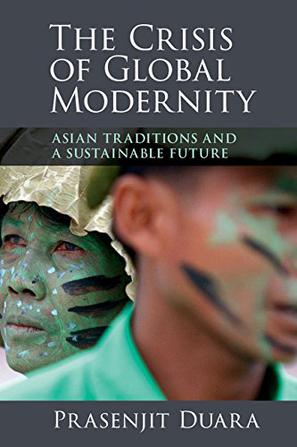
The Crisis of Global Modernity
In this major new study, Prasenjit Duara expands his influential theoretical framework to present circulatory, transnational histories as an alternative to nationalist history. Duara argues that the present day is defined by the intersection of three global changes: the rise of non-western powers, the crisis of environmental sustainability and the loss of authoritative sources of what he terms transcendence - the ideals, principles and ethics once found in religions or political ideologies. The physical salvation of the world is becoming - and must become - the transcendent goal of our times, but this goal must transcend national sovereignty if it is to succeed. Duara suggests that a viable foundation for sustainability might be found in the traditions of Asia, which offer different ways of understanding the relationship between the personal, ecological and universal. These traditions must be understood through the ways they have circulated and converged with contemporary developments. -
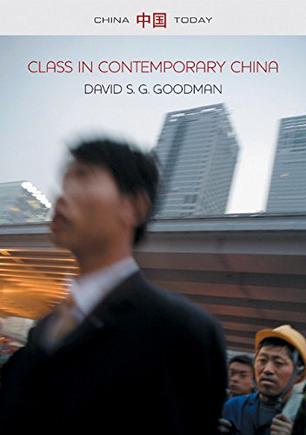
Class in Contemporary China
More than three decades of economic growth have led to significant social change in the People’s Republic of China. This timely book examines the emerging structures of class and social stratification: how they are interpreted and managed by the Chinese Communist Party, and how they are understood and lived by people themselves. David Goodman details the emergence of a dominant class based on political power and wealth that has emerged from the institutions of the Party-state; a well-established middle class that is closely associated with the Party-state and a not-so-well-established entrepreneurial middle class; and several different subordinate classes in both the rural and urban areas. In doing so, he considers several critical issues: the extent to which the social basis of the Chinese political system has changed and the likely consequences; the impact of change on the old working class that was the socio-political mainstay of state socialism before the 1980s; the extent to which the migrant workers on whom much of the economic power of the PRC since the early 1980s has been based are becoming a new working class; and the consequences of China’s growing middle class, especially for politics. The result is an invaluable guide for students and non-specialists interested in the contours of ongoing social change in China. -
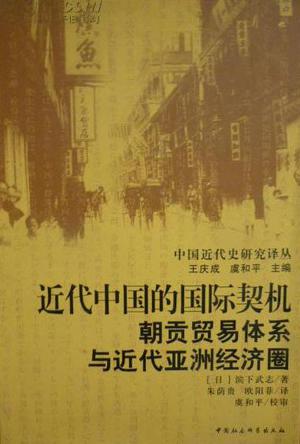
近代中国的国际契机
《近代中国的国际契机:朝贡贸易体系与近代亚洲经济圈》以中国传统的朝贡贸易体系为基点,运用国际经济圈的理论分析论述了以中国为中心的近代亚洲经济圈的状况,兼及亚洲经济圈与西欧、美国经济圈的关系,开创了新的研究领域,并对以往的西方学者在研究中国近代化中所采用的“西方冲击论”提出了不同的观点,从中国和亚洲内部的传统因素中寻找中国和亚洲近代化的前提条件及其影响,从而较好地处理了传统与现代的关系问题。书中所论述的商品流通渠道、货币汇兑渠道、香港在亚洲经济圈中的地位和作用,以及中国和日本传统经济中的某些商业和金融组合形式对近代商业和金融组合形式的影响等问题都颇有新意。该书还具有较强的现代意识,探讨了这些近代以前的传统经济因素和经济圈对当前中国现代化的影响问题。书中采用了大量宝贵的外文资料,如英国议会文书等,对国内的研究者是不可多得的。 -
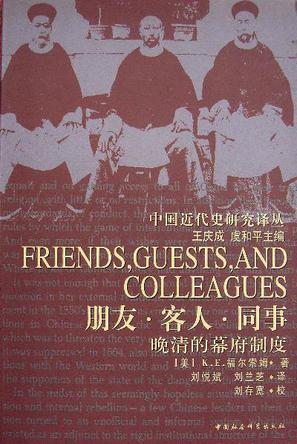
朋友·客人·同事:晚清的幕府制度
本书是美国学者系统研究晚清幕府制度的专著,以研究曾国藩、李鸿章的幕府为其主要内容。书中简要回顾了中国幕府制度的形成、演变过程,较详细地论述了清朝前期幕府的构成、职能以及清廷对幕府的政策,说明了中国近代社会巨变导致晚清新式幕府制度崛起的特点。作者曾走访过李鸿章的几位后人李国超等,获得了不少有价值的资料。同时运用中、英文原始资料,诸如当时在华供职外国人的著述、清朝官方档案、私人信札或记述,使本书具有较高的学术价值和可读性。 -
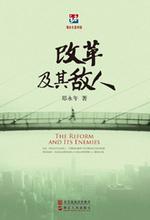
改革及其敌人
《改革及其敌人》是“郑永年看中国”系列之一,精选了作者近年来关于中国国内政治(主要是政治改革)的评论文章。 毫无疑问,中国未来的发展,取决于政治改革的进程。但恰恰对于政治改革,中国社会的共识越来越少。左派和右派之间的争论越来越 空,越来越情绪化。本书作者郑永年先生认为,无论是左派的恐惧主义还是右派的幻想主义,都没有出路。政治不改革已经造成了诸多非常深刻的负面结果,威胁到执政党各方面的可持续发展;而改革如何进行,又不能不顾中国现实,牢牢抱住西方的教条。中国必须根据自身的 政治传统和历史轨迹,找出适合自身条件的改革途径。这是一项充满矛盾和困难的伟大事业,处处呼唤着政治家的理性、魄力和自我约束。 本书围绕政治改革这一宏大题旨,按照变革中的精英政治、腐败治理、渐进开放、意识形态重建、民主的中国模式、政治改革的基本议程等重要主题,对中国式政治制度建设作了独立、独到的探索。 -
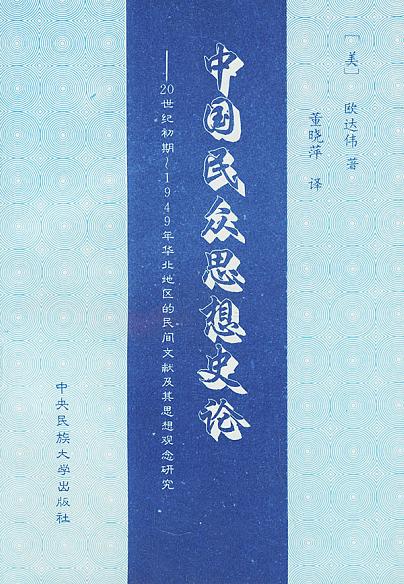
中国民众思想史论
本书在内容上,探讨了华北地区自大革命至1949年以前的一段时期,当地人民的精神世界。它分别从民众的恋爱婚舅观、道德观、对正统观念的态度,以及他们的创业思想等方面进行探索。他所采用的资料,主要是这些地区民间流传的土著文艺。透过这些民众自己创造和享用的文化产物,分析和提示当地民众在这些文化活动里所涵蕴的观念、情绪和愿望。这在中国民众思想史(或者说精神史)的研究上,是一种新颖而又有效的方法;对我们民间文艺学、或民俗学的研究来看,也是一种可供参考的治学角度。